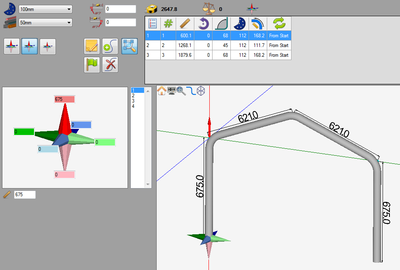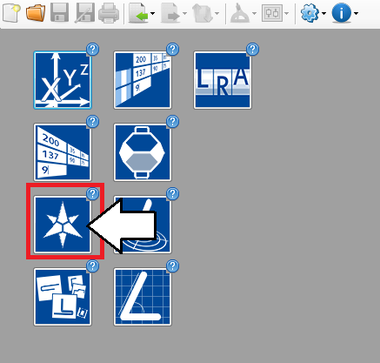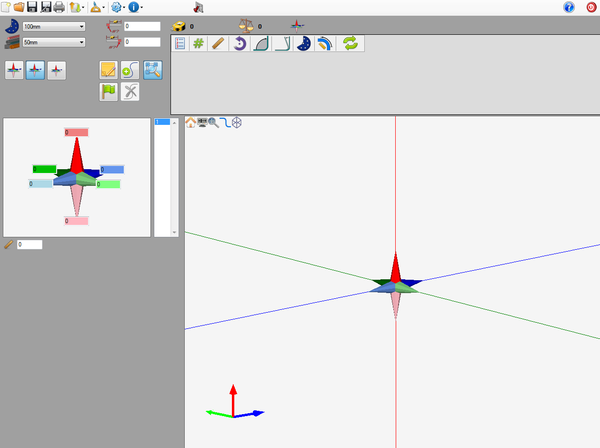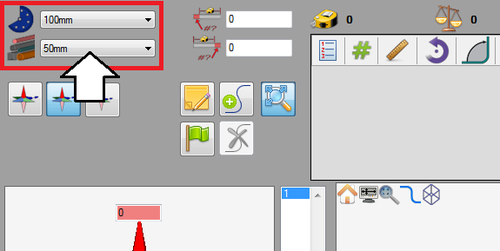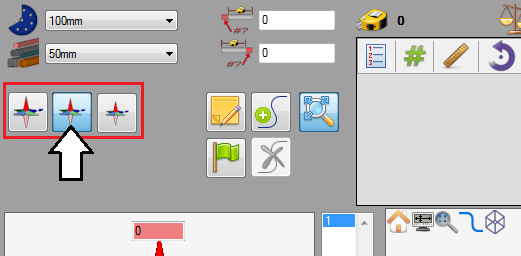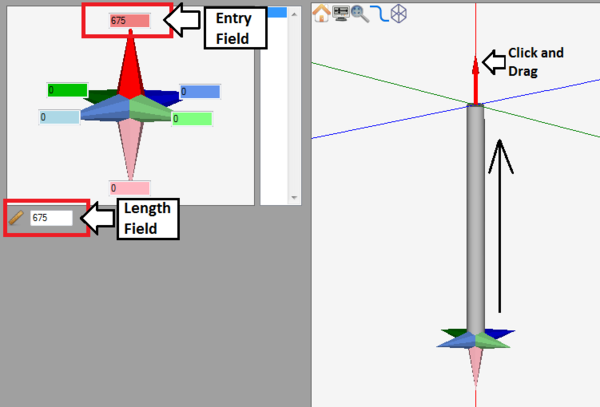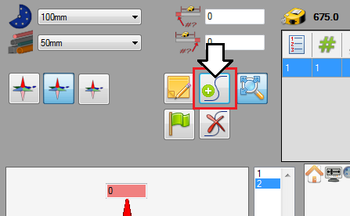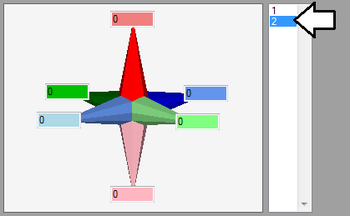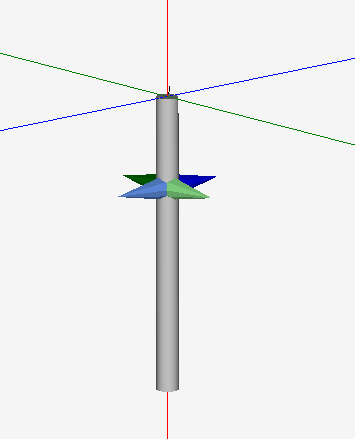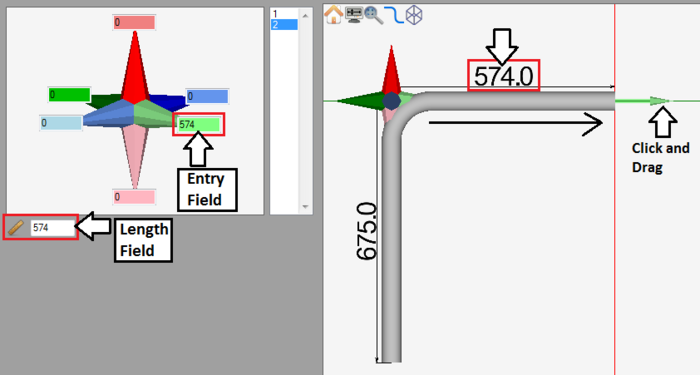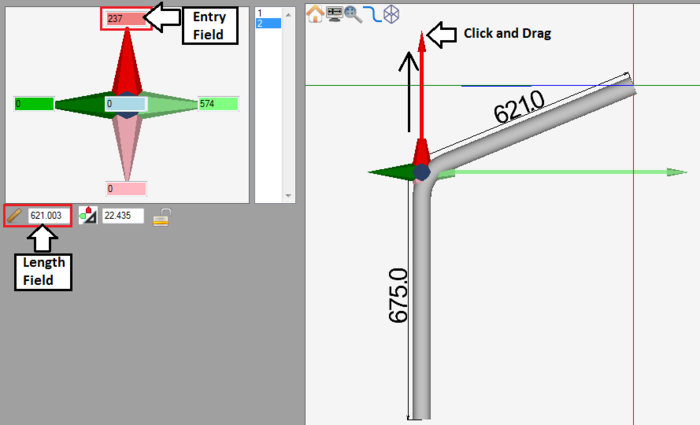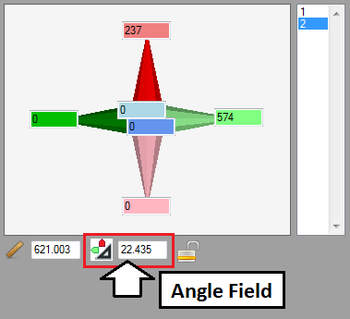Difference between revisions of "Harpoon Designer Tutorial"
| Line 73: | Line 73: | ||
==='''Step 6'''=== | ==='''Step 6'''=== | ||
| − | Next, the '''first bend''' will be added to the part. Click the '''add bend''' button. [[File:addbend.png]] | + | [[File:harptut13.png|right|350px]]Next, the '''first bend''' will be added to the part. Click the '''add bend''' button. [[File:addbend.png]] The add bend button is located near the upper left corner, as shown in the image to the right. Once this button is clicked, a bend will be added to the part. |
| + | |||
| + | |||
In the '''bend list''' below, there will be a '''1''' and a '''2''' listed. The 1 represents the length that was added in step 5 and the 2 represents the bend that will be created in this step. | In the '''bend list''' below, there will be a '''1''' and a '''2''' listed. The 1 represents the length that was added in step 5 and the 2 represents the bend that will be created in this step. | ||
| Line 91: | Line 93: | ||
| − | |||
| − | + | ||
| + | Next, the '''angle of the bend will be adjusted'''. '''Click and drag the red harpoon point''' until the red entry field reads about '''237''' and the total length of this length is roughly '''621 mm'''. | ||
| + | |||
| + | [[File:harptut12.png|700px]] | ||
| + | |||
| + | |||
| + | [[File:harptut14.png|right|350px]] | ||
| + | |||
| + | After the red harpoon point is pulled, notice that '''a new field appeared below the entry fields area'''. This is the '''angle field'''. The icon next to this field will show which axis the angle is along. In this case, the value here represents the angle along the red and green axis. The angle should be around '''22.4'''. | ||
Revision as of 08:38, 27 June 2013
Contents
Introduction
This tutorial will step through the process of designing a part (Shown to the right) in the harpoon part designer interface.While designing a part in the harpoon designer, the die and material are chosen and the part is designed by clicking and dragging the part from the harpoon tool.
Note: This tutorial will use millimeters as the measurement units.
Tutorial
Step 1
First, a new harpoon part design needs to be started. On the start up page, click the harpoon designer button. 
Note: Depending on the version of software currently in use, fewer designer buttons may be included on the start up page.
Step 2
Now a new harpoon part designer window will open. This is where the part will be designed.
Step 3
First of all, the die and material need to to be chosen. The die and material menus are located in the upper left corner of the designer window.
Choose a die by clicking the drop down menu next to the die icon. Select the 100mm die from the list, as shown in the image below. (Note: This die was made in the Die Library Tutorial. If this die is not shown in the die selection menu, please complete the die library tutorial before proceeding.)
Choose a material by clicking the drop down menu next to the material icon. Select the 50mm material from the list, as shown in the image below. (Note: This material was made in the Material Library Tutorial. If this material is not shown in the material selection menu, please complete the material library tutorial before proceeding.)
Step 4
Directly below the die and material menus, there are three preset scale buttons that control the zoom level of the graphical/part model display. Click the medium scale button (in the middle).
Step 5
Now the first length of the part will be created. To do so, click and drag the red harpoon point until it is roughly 675 mm. Watch the red entry field or the length field to the left to see how long the part length is.
Step 6
Next, the first bend will be added to the part. Click the add bend button.
In the bend list below, there will be a 1 and a 2 listed. The 1 represents the length that was added in step 5 and the 2 represents the bend that will be created in this step.
On the part model in the graphical display, the harpoon tool will be moved near the end of the part, as shown below.
First, click and drag the light green harpoon point until the new length is roughly 574 mm. Watch the part dimension, light green entry field, or the length field to get the length measurement.
Next, the angle of the bend will be adjusted. Click and drag the red harpoon point until the red entry field reads about 237 and the total length of this length is roughly 621 mm.
After the red harpoon point is pulled, notice that a new field appeared below the entry fields area. This is the angle field. The icon next to this field will show which axis the angle is along. In this case, the value here represents the angle along the red and green axis. The angle should be around 22.4.
Step 7
(bend 3)
Step 8
(bend 4)
Step 9
(results and graphical)
Step 10
(bend order, save, & setup)
